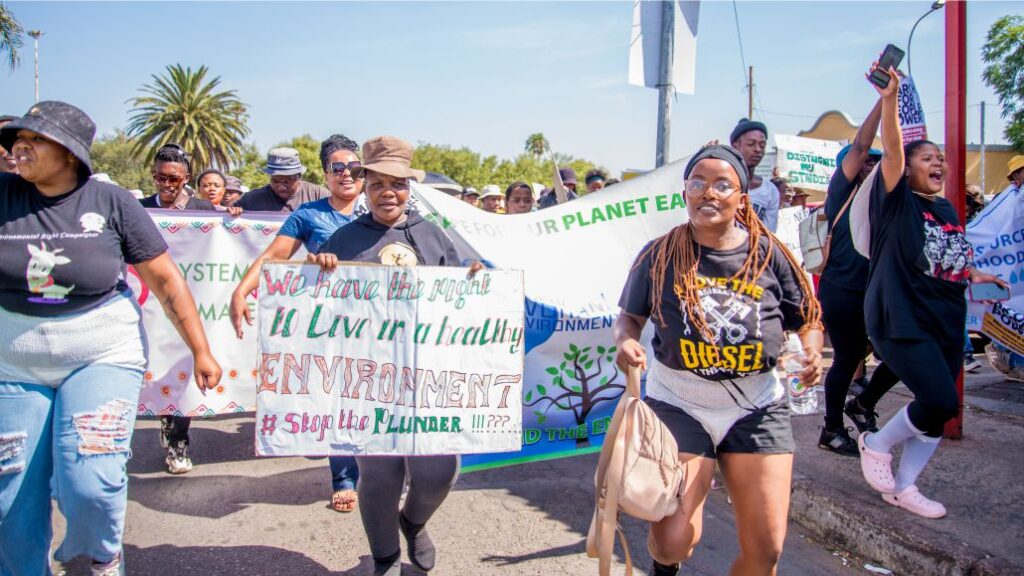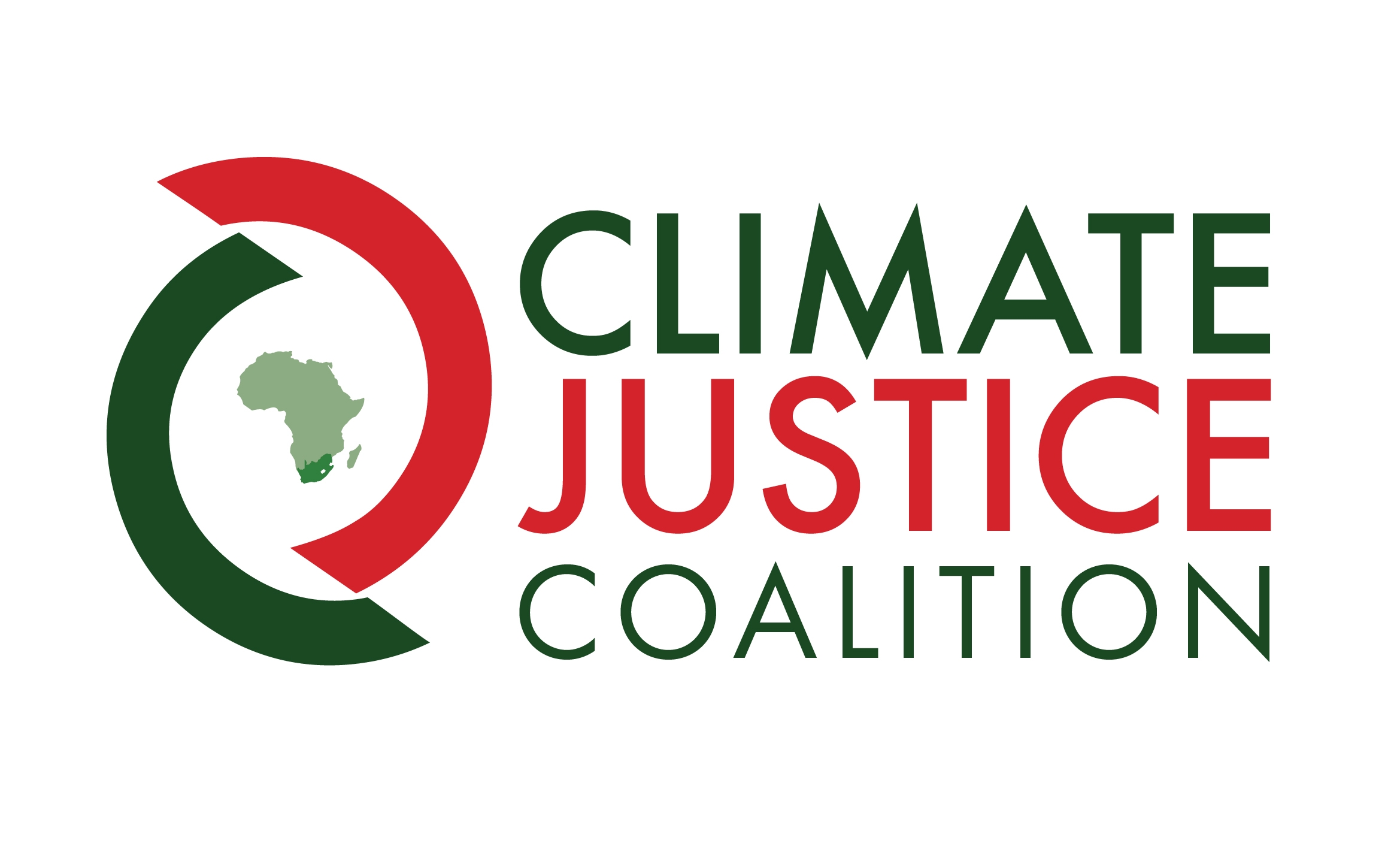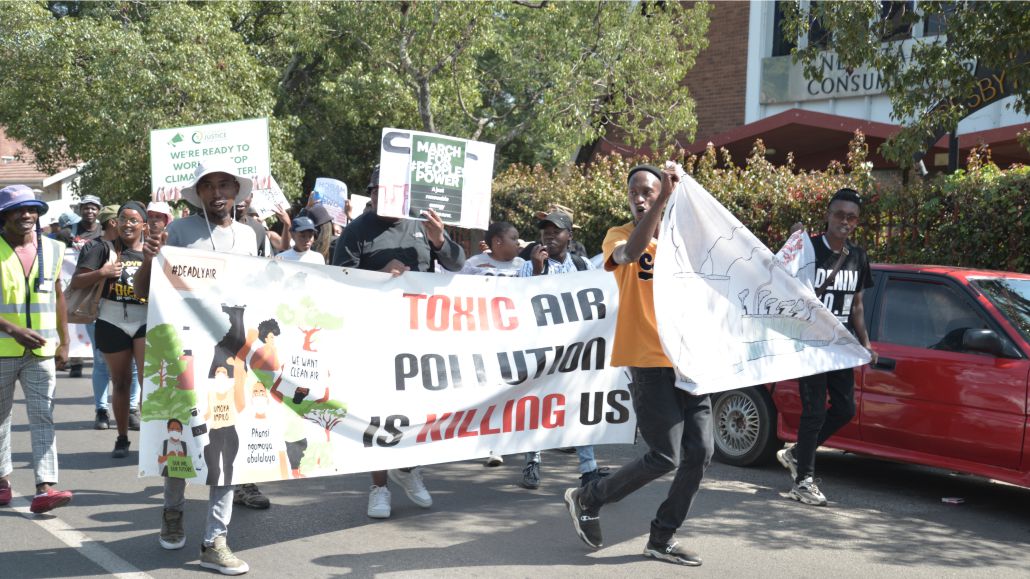Mining without mercy: How communities are being sacrificed for profit.
July 10, 2025 –
As environmental and human rights defenders, we have observed a troubling pattern. Since the start of mining development and prospecting in our communities, the Department of Mineral and Petroleum Resources (DMPR), formerly known as the Department of Mineral Resources and Energy (DMRE) has consistently failed to protect those living near mining operations.These companies have been breaking the law by not conducting proper consultations with affected communities, and yet these multinationals continue to get away with it, sometimes with deadly consequences.
The rights of these communities have been violated and manipulated by both the DMRE and mining companies . There has never been proper involvement of communities in the development and implementation of Social and Labour Plans (SLPs). We have communities who have been forcibly relocated and displaced without fair compensation. The law states that when a person is relocated or evicted, they are entitled to housing and living conditions that are equal to or better than what they had before and crucially, relocation must happen with community consent.
The Standard Conditions of Practice (SCP) states that there should be life after mining. If there was farming activity in an area before mining began, rehabilitation should occur during or after operations. Grass and trees should be planted on mine tailings to reduce dust and prevent health hazards for nearby communities.

Let us remember: mining affects both water and air quality. Toxic elements seep into the ground, and the air becomes polluted. In some mining-intensive regions of South Africa, mining operations consume over 50% – 60% of available clean water, significantly straining local water resources. While nationally, mining accounts for around 8% –12% of water use, its impact is disproportionately high in rural and water-scarce communities. This is water meant for human consumption, yet communities are forced to pay for what is supposed to be a God-given resource.
My point is this: old tailings that had long settled and were once considered safe are now being disturbed. This is often done to extract remaining minerals for profit, but without creating jobs for local communities like the Thabong Community in Welkom Free State that I live in or consulting them in any way. When I went to the DMRE to inquire, I was told that these operations belong to current mining companies, like Harmony Gold, and are not the DMRE’s responsibility. I find this response arrogant and dismissive. These issues affect community health, the environment and basic human rights like access to clean air and water.
Even with all this, we get no answers. There’s no plan for environmental rehabilitation, no grass grown back for grazing, no clear accountability.
So how do we follow the money? What exactly is happening at the new slush plant built for this purpose? The site has been fenced off and heavily secured, with armed guards patrolling the perimeter.
This is a story of neglect. It is a story of deliberate disregard for the lives, rights, and futures of people living near mines. Communities are not passive victims; we are witnesses, whistleblowers and organisers. Yet our calls for justice are met with silence, suppression, or repression.
After the Covid-19 pandemic, many extractive development decisions were made behind closed doors. Mining Rights were handed to multinationals without proper community consultation. Meanwhile, community-based organisations working to uplift the vulnerable have faced increasing political pressure and interference. In one example, two organisations I worked with were abruptly removed from a shared community space, while others were allowed to remain.
At the same time, some local actors, connected to political structures, have taken advantage of unemployment and desperation by demanding money from community members in exchange for jobs or access to mining companies. This type of gatekeeping, supported by certain elements in local government, undermines genuine community development and consultation.
I personally stepped back from some formal platforms and organisations after witnessing how the space became increasingly compromised. My concern is that meaningful change is often resisted by those who benefit from continued power and exclusion.
People first. Always.
Themba Ngcezulla is an activist from Orlando East, Johannesburg. His political awakening began under apartheid, shaped by family experiences of police harassment and the influence of Black Consciousness thinkers like Steve Biko. As a student and organiser, he was active in resistance movements, went into exile, and continued underground activism on his return – helping form AZAPO and leading stay-away campaigns to render the state ungovernable.
Today, Themba remains active in grassroots movements for justice and democracy as a founder of Tshwaranang ma Afrika. He is a founding member of MACUA and involved in campaigns such as the Freedom of Expression Network, Right2Know, and the Landless People’s Movement.

